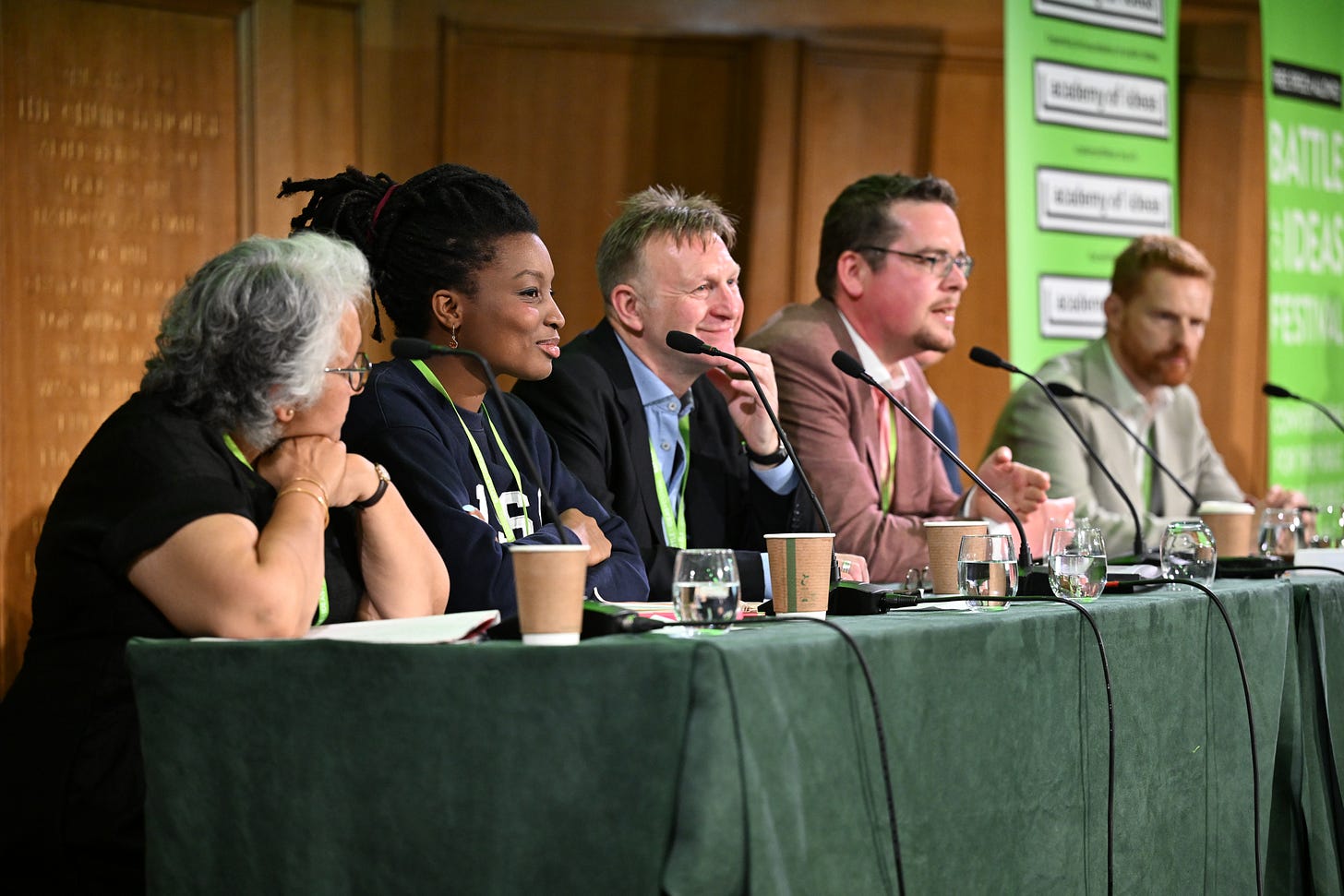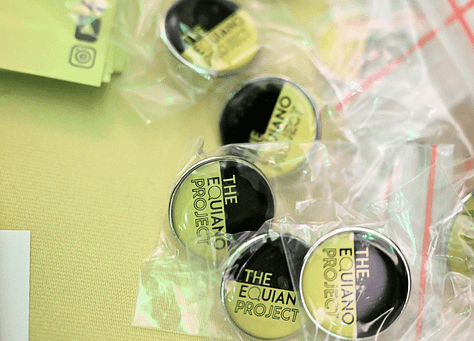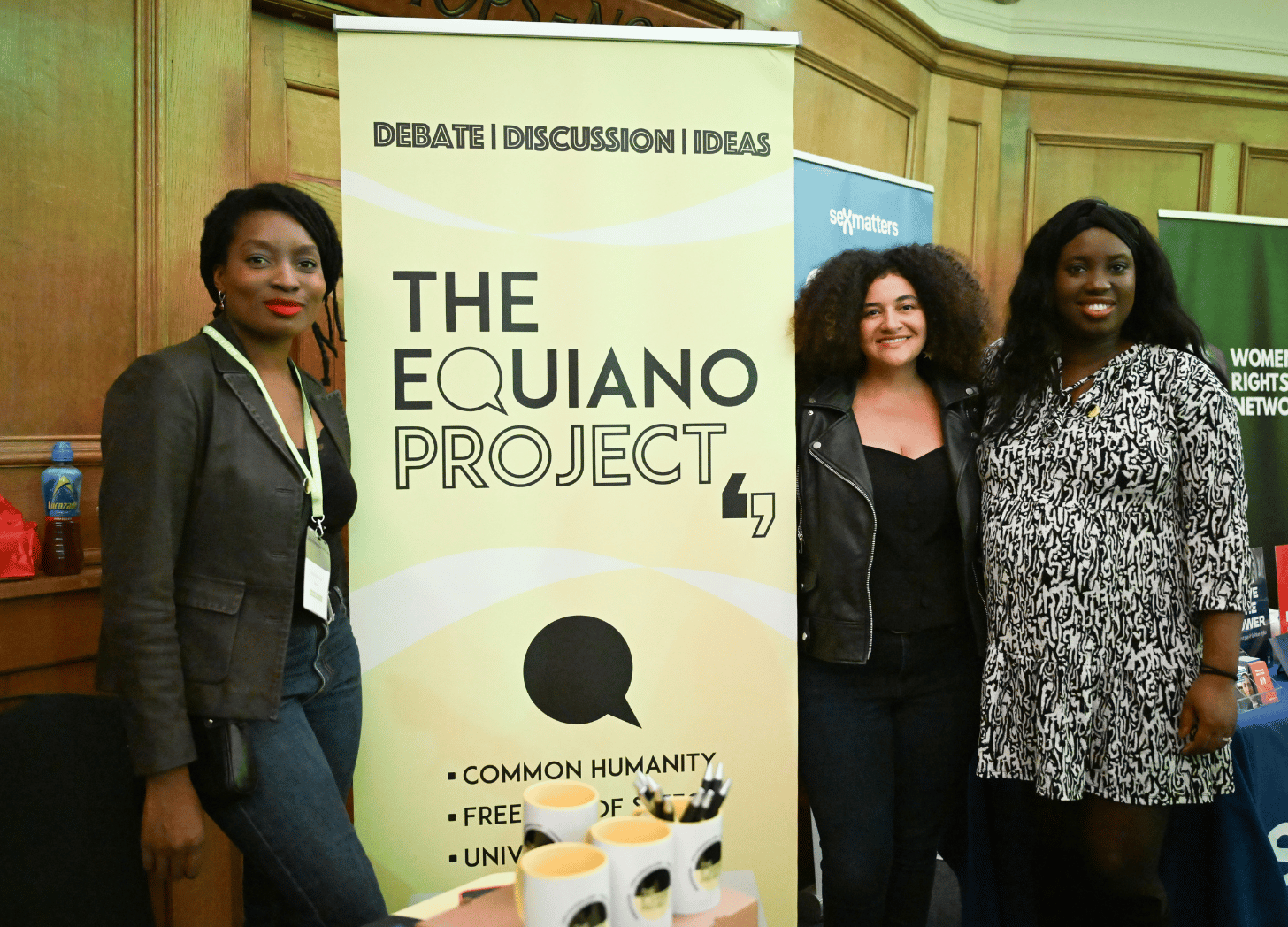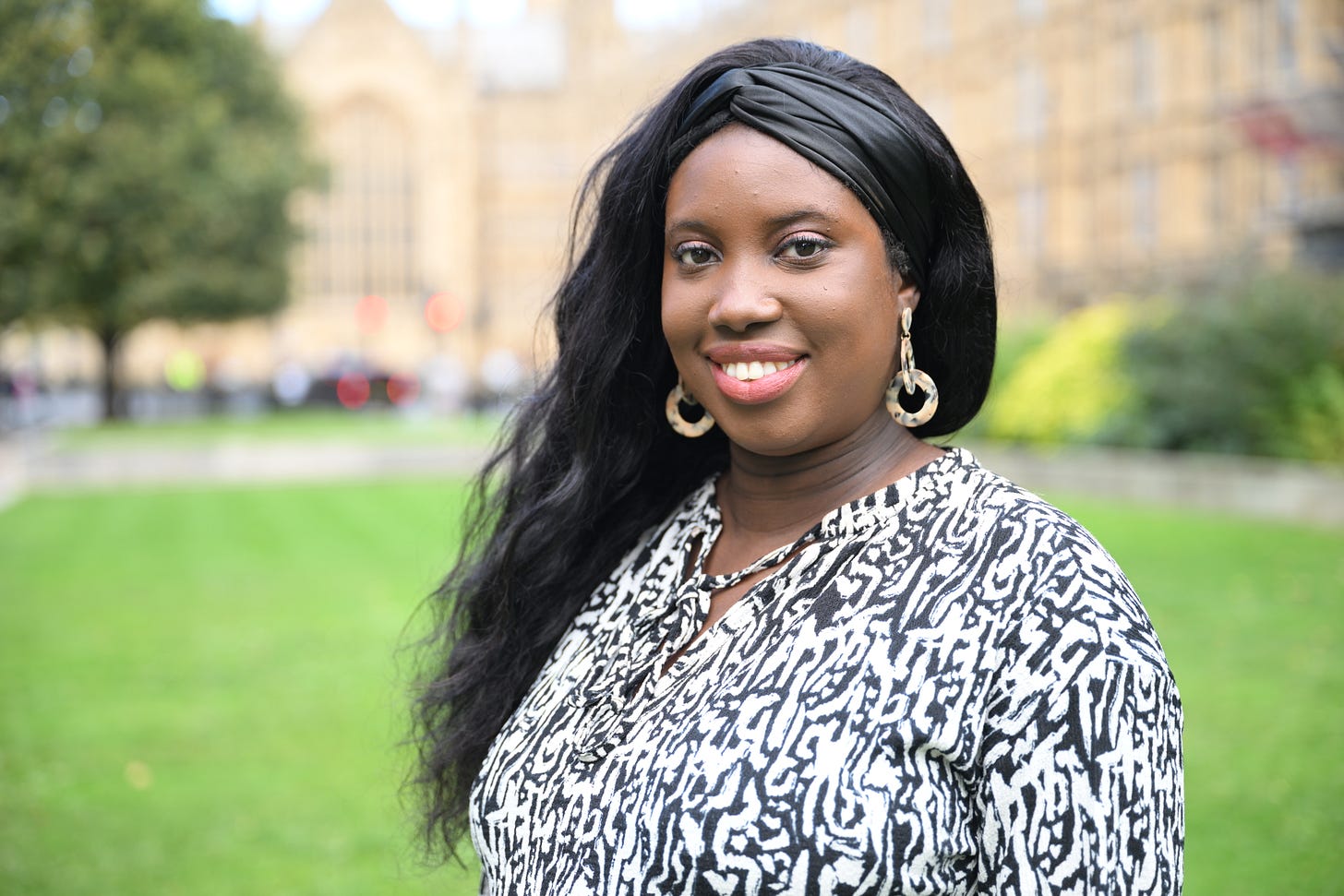Last weekend, I had the pleasure and privilege of attending the Battle of Ideas, a festival filled with lively debates and discussions tackling some of today’s most pressing cultural and political challenges. The weekend featured an impressive lineup of panels, with contributions from academics, politicians, journalists, and public thinkers.

The key objectives of the Battle of Ideas festival are to encourage critical thinking, critique conventional wisdom and mainstream narratives, and provide a space for open dialogue on urgent societal matters. Audience engagement is a priority, with Q&A sessions and informal conversations serving as essential components of the experience.
The Equiano Project team had a strong presence at the festival, contributing to several panel discussions. Our director,
, participated in two highly relevant and thought-provoking panels. The first panel event (co-produced by us) examined the complex distinctions between Islam, Islamism, and Islamophobia, exploring how these terms are often conflated and their implications for public discourse. The second panel event addressed the challenges of integration, immigration, and multiculturalism, aiming to provide a critical analysis of how these factors shape the social fabric of modern Britain.I also spoke on two panels: one focused on the emergence of new grassroots initiatives and organisations tackling societal challenges such as free speech, civic engagement, and identity issues; the other explored whether YouTube expands educational opportunities or if it spells bad news for “real” education.
In this post, I want to share the content of my opening speech from the latter discussion regarding YouTube. The focus of the session was on how young people increasingly use YouTube and online platforms for education, often bypassing traditional institutions that they view as inadequate or ideologically biased.
Why are so many seeking knowledge and intellectual engagement online rather than through established, traditional channels?
I believe one of the key words here is tradition. The 17th and 18th centuries were pivotal eras that significantly shaped the world we know today. While these periods were also rife with atrocities and many absurdities, it also saw the rise and solidification of liberalism in political and public spheres. Liberalism institutionalised individualism as a dominant value in Western societies, advocating for personal freedom and the right for individuals to pursue their own paths. This encouraged people to think for themselves and of themselves as autonomous agents capable of making their own decisions.
However sometimes we overlook that genuine independent thinking and personal autonomy require us to question – and sometimes outright reject – traditional sources of authority. History shows this pattern clearly. We saw this happen with monarchies and the church, which were seen to constrain or interfere with individual freedom. By promoting secularism and the separation of church and state, liberalism empowered individuals to think freely and define their own identities and beliefs independently of external control.
The increasing reliance on online platforms for knowledge and intellectual engagement is a natural outcome of centuries-long transformations in how we perceive authority. Traditional education is no longer viewed as the definitive authority that dictates our learning. Contemporary society has cultivated a new relationship with authority—we reject it, disdain it, and are often suspicious of it, frequently seeking ways to dismantle it. While the term "dismantle" may evoke thoughts of the “radical left,” this is a sentiment that spans across the political spectrum.
This shift marks a significant departure from centuries past, when authority was clearly defined, widely recognised, and deeply respected. If we compare how our modern world engages with representatives of authority today to previous eras, the differences are striking. Consider how the police were treated in the past versus how they are perceived now, or how national leaders were regarded compared to today's constant mockery, denigration and public vilification of them. Even within our own homes, parental authority is often undermined, as children push back against their parents’ decisions and try to assert their own desires.






There may be legitimate reasons for these changing sentiments which warrant their own discussion, but the main point is that we are increasingly distancing ourselves from traditional authority figures and institutions. We have become our own authorities in curating our understanding of the world and of our own selves. And the online world which allows for the increased democratisation of knowledge is fuelling this transformation. Digital platforms have shattered traditional information hierarchies, and created a vast marketplace of ideas where established institutions must compete with emerging voices.
We have become our own authorities in curating our understanding of the world and of our own selves.
People have taken charge of their own knowledge acquisition as traditional education has increasingly revealed its limitations. But the rise of self-directed learning, particularly online has its own problems. A fellow panellist, for example, asked the audience if they could remember the last five videos they watched on YouTube, and it seemed that many could not. This highlights how the oversaturation of information has created a paradox where more knowledge is available than ever before, yet our ability to meaningfully process and retain it seems to be diminishing. Moreover, anti-intellectualism flourishes in environments where depth is sacrificed for engagement metrics. In these spaces, superficial understandings of complex topics prevail as users flit between shallow explanations. Ideological echo chambers take root, with algorithms prioritising user retention over genuine intellectual growth.
There are also concerns that young people spending so much time online leads to a more antisocial and alienating world, and I agree to some extent. However, I’d argue that our “physical” world already embodies many of these alienating qualities. Traditional community bonds have eroded, and many face-to-face relationships remain surface-level because people are often too afraid or overly cautious to express what they really think. Perhaps digital platforms aren’t fostering isolation; perhaps they are facilitating the kind of substantive human connection that many find increasingly elusive in traditional social settings. People aren’t withdrawing from society; they’re forming alternative and often more meaningful ways to learn, connect, and develop themselves.
That said, we shouldn’t disregard traditional education entirely. Tradition is good: it provides a necessary level of order and continuity. However, if traditional institutions continue to fall short in meeting the demands of our rapidly evolving world—one that increasingly values personal growth, independent thinking, and authentic discourse—their decline, and possibly their ultimate demise, will not only be likely but inevitable.
Overall, it was an electrifying and impactful weekend at the Battle of Ideas festival, and I'm grateful to the
for creating such a vibrant space that allows us to explore critical cultural and political topics. The Equiano Project will, of course, continue to examine many of these issues in our upcoming events and initiatives.Ada is the Head of Content at The Equiano Project. Subscribe to The Equiano Project YouTube channel HERE.







I loved hearing and meeting you at the YouTube session. Wonderful talk!
It sounds a wonderful event. I wish I could have been there!